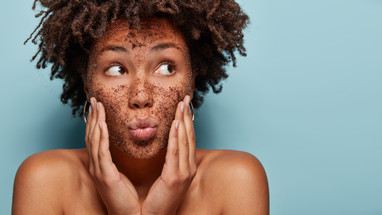Feb 12th 2020
Q&A with Elina Fedotova: How Often Should You Exfoliate?
Elina was recently interviewed about how often people should exfoliate their face for a leading health advice site.
Q. How often should people generally exfoliate their face?
A. It’s different for different skin types. Exfoliation is needed because our skin regenerates from inside out, and as a result, the layers of dead skin cells are pushed to the top of the skin. In some cases, if we are not exfoliating, our skin’s texture will look dry and uneven. Some people have more resilient and plumper skin versus some people have a tendency to have dry and thin skin. So generally, they need to exfoliate less. If we would like to have general advice, at least once a week to polish our skin and remove the excess shells of dead skin cells.
Q. What is the best method to use and what ingredients/qualities should people look for in products?
A. Different methods of exfoliating exist. The most common is simple mechanical exfoliation when we use different types of scrubs, brushes or even exfoliating cloths to rub against your skin to polish and smooth skin by mechanically removing excessive dry skin. Another type of exfoliation is chemical exfoliation used with different types of acids like alpha-hydroxy acids, salicylic acids, as well as fruit enzymes like bromelain from pineapple to meltdown or disintegrate excessive layers of the dead skin cells chemically. For chemical exfoliation, you could use synthetic or natural acids and enzymes.
Q. Should you exfoliate more or less if you have the following and why?
A.
- Dry/sensitive skin: You still have to exfoliate but be careful not to overdo it. For this type of skin, I would recommend fulvic acid because it has a gentle ph and it will naturally exfoliate and heal the skin at the same time with over 60 essential trace minerals. I would not recommend mechanical exfoliation techniques or chemical peels made from artificial and aggressive acids.
- Oily/acne-prone skin: Use beta-hydroxy or salicylic acid as well as azalayic acid peels or products because those two acids have antimicrobial and anti-inflammatory properties, in addition, exfoliating benefits. Fulvic acid for the sensitive acne-prone complexion.
- Combination skin: You can’t approach combination skin with one solution. Definitely, thicker and more oily areas, usually t-zone, which have excessive oil and dead skin build-up you can approach a little more aggressively. You can cleanse the pores with scrubs focus on the more congested area, but avoid thinner areas of the skin.
- Mature skin: Usually after 40, people develop thicker layers of the dead skin cells on the surface. To improve the texture, and reduce the depth of lines and wrinkles we usually need to exfoliate more. Of course, you need to choose exfoliation based on your complexion for dry/sensitive, oily/acne-prone, or a combination.
Q. Any other tips would be great!
A. Yes, exfoliation is important. Skin will look tough, dry, and more mature if a person ignores exfoliation throughout their life. But, over-exfoliation could bring even more harm because people who are exfoliating too much can really harm their top layer of the skin which serves as a protective barrier. One of the main functions of the larger organ of the body, our skin, is protection and we need to make sure our top layer is supposed to have several layers of dead skin cells to protect us from infections and other possible harms. A healthy skin's microbiome is not less important than the microbiome of your gut. Friendly bacteria, such as probiotics, is not only important for your digestion, but also for the health of your skin. Overly aggressive exfoliation, as well as the use of antibacterial soaps and wipes, can seriously affect that balanced zoo of microbes, yeast, and other microorganisms on the surface of your skin. Bottom line, yes we should exfoliate, but do it safely and don’t overdo it.

